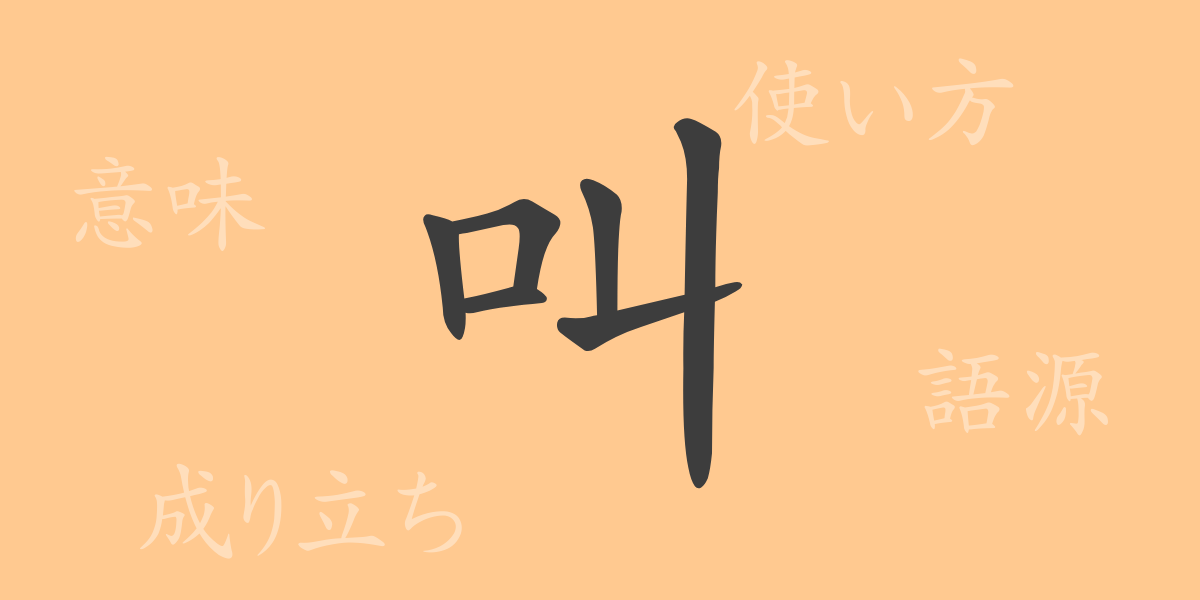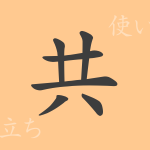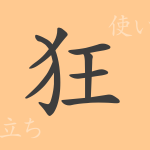Words are powerful tools for conveying human thoughts. Japanese kanji characters are imbued with deep meanings and history, and among them, “叫(さけ.ぶ, sake.bu)” symbolizes the intensity of emotions and urgency. This article explores the full scope of the kanji “叫(さけ.ぶ, sake.bu)”, from its origins to its modern usage.
Origin of 叫(さけ.ぶ, sake.bu)
The kanji “叫(さけ.ぶ, sake.bu)” originated from ancient Chinese pictographs. It depicts an open mouth shouting loudly. Initially, it was used similarly to “呼(こ, ko)”, meaning “to call”. Over time, “叫(さけ.ぶ, sake.bu)” evolved to specifically convey stronger emotions and actions associated with shouting.
Meaning and Usage of 叫(さけ.ぶ, sake.bu)
The kanji “叫(さけ.ぶ, sake.bu)” means “to shout loudly”, “to cry out”, and “to scream”. It is often used in urgent situations or when emotions are heightened. Additionally, it can be used metaphorically to mean “to assert” or “to announce”.
Readings, Stroke Count, and Radical of 叫(さけ.ぶ, sake.bu)
The kanji “叫(さけ.ぶ, sake.bu)” is a commonly used character in everyday Japanese.
- Readings: On-yomi – “キョウ(きょう, kyō)”, Kun-yomi – “さけ.ぶ(さけぶ, sake.bu)”
- Stroke count: 6 strokes.
- Radical: The radical is 口(くちへん, kuchihen), meaning “mouth”.
Idioms, Proverbs, and Phrases Using 叫(さけ.ぶ, sake.bu)
There are numerous idioms, proverbs, and phrases that include “叫(さけ.ぶ, sake.bu)”, each with its own unique meaning and usage. For example, “絶叫(ぜっきょう, zekkyō)” means to scream very loudly, “呼号(こごう, kogō)” means to call out someone’s name loudly, and “天に叫ぶ(てんにさけぶ, ten ni sakebu)” means to cry out with strong feelings of regret or appeal.
Summary of 叫(さけ.ぶ, sake.bu)
The kanji “叫(さけ.ぶ, sake.bu)” has played an important role in Japanese due to its ability to express strong emotions and urgency. This single character encapsulates the power of human cries. Through idioms and phrases used in daily life, one can appreciate the cultural background and the rich range of expressions it offers.

























